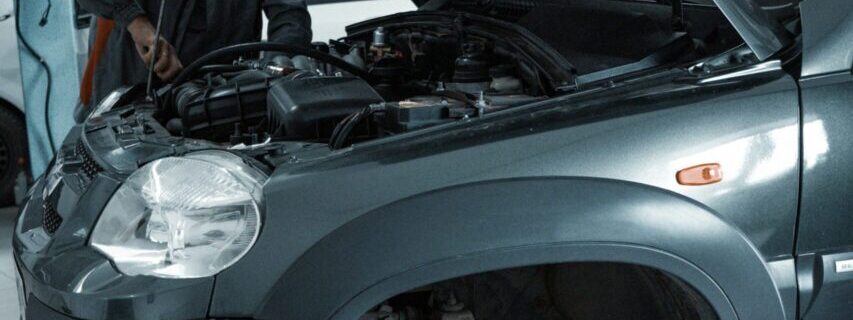Question: Is it legal to drive without a hood?
Answer: It depends what state you’re in. A few states have specific laws pertaining to car hoods. Nevertheless, if you go for a spin without a hood, you could be pulled over, ticketed and/or fined on the grounds that the vehicle seems unsafe or is emitting smoke or fumes.
As you probably know, a hood is a cover that goes over the engine bay of a vehicle, protecting its components. Drivers might want or need to drive without a hood if it’s been damaged in an accident, if it’s getting painted, or if they’ve been working on the engine. Or they might just think it looks cool.
In Maryland, vehicles require inspection before they’re registered, and to pass inspection, the hood must cover at least the top part of the engine compartment and have properly functioning safety latches.
Hawaii’s state law specifies that hoods are optional equipment on street rod vehicles and cars manufactured before 1968. Owners of those types of cars might go hood-free to allow for engines so big they stick out of the engine bay, or just to allow extra air flow around the engine. Drivers of antique cars might like to show off their unique parts.
In other states, the law is silent on the issue of hoods. In 2021, the California Highway Patrol explained on Facebook that “California has many laws specific to the equipment on a motor vehicle, however having a hood is not one.” The agency posted, “Therefore, it is completely LEGAL to drive your vehicle with NO hood.”
Nevertheless, if a law enforcement officer sees you cruising down the street without a hood, he or she might pull you over on grounds that you’re operating an unsafe motor vehicle, or that your car is polluting the air. For example, West Virginia state statutes specify that “the engine and power mechanism of every motor vehicle shall be so equipped and adjusted as to prevent the escape of excessive fumes or smoke.”
Check your state laws
If you want more detail, you can read through your state’s statutes and search for regulations pertaining to motor vehicles.
Generally speaking, though, it’s a good idea to have a hood, because if you don’t, precipitation could damage your car’s components. The battery could get corroded, or the engine rusted out. Sunlight could even dry out belts.
Furthermore, an open engine bay might attract curious passersby. You wouldn’t want kids or animals to touch your engine and get hurt. Also, thieves and vandals might be tempted to mess with your vehicle, especially if you leave it parked unattended. Not to mention, there’s bird poop to contend with!

Deirdra Funcheon is a journalist with a master`s degree from Boston University and more than 20 years of experience covering a broad range of topics. She has worked at Univision (on the investigative team at Fusion), Axios (where she covered Miami-area news) and Bisnow (covering the commercial real estate industry). At Jerry, she aims to empower drivers with knowledge about how their vehicles work and how best to handle repairs, insurance and other complications of car ownership.

Chris Burkhardt is a writer and editor with over a decade of experience across various storytelling mediums. With Jerry, Chris hopes to help anyone with a question about their vehicle easily find the answers they are looking for. Whether you need to know how much insurance costs for a classic car, how to replace a broken light or tell if you need an oil change, Chris wants to help you find solutions the best he can. Prior to joining Jerry, Chris was a digital content producer and writer for NBC and a freelance editor for NerdWallet. A graduate of the University of Oregon’s School of Journalism and Communication, if Chris is not working on content, he’s sure to be found cheering on his Ducks!








